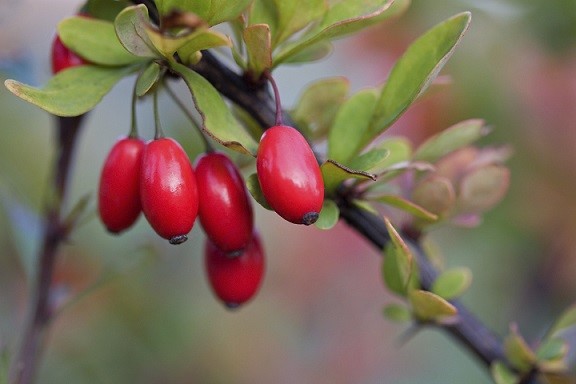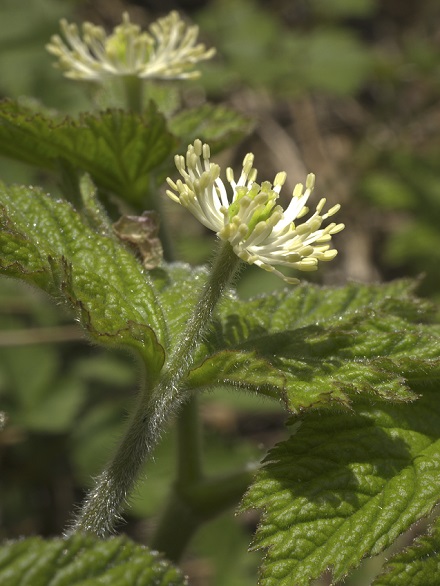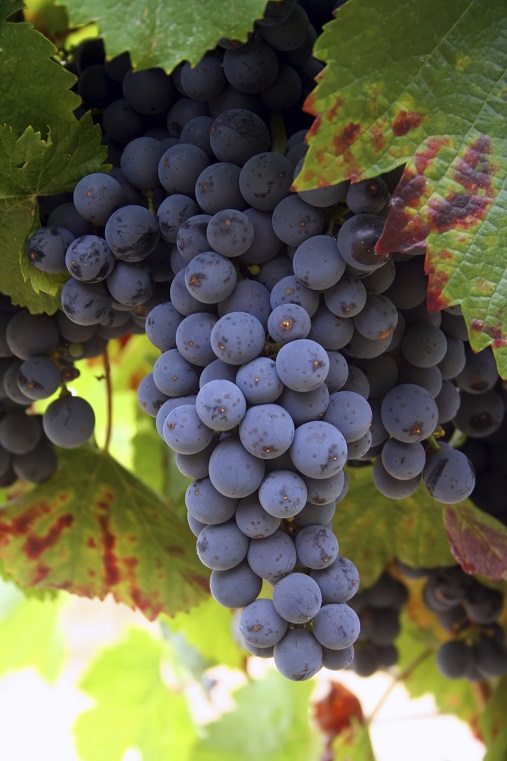 These days, fad supplements come and go out of fashion in the blink of an eye. The likes of chlorophyll and wheatgrass have enjoyed raging popularity among vegans and alternative health fanatics, but as we discussed here, there’s no value to chlorophyll at all.
These days, fad supplements come and go out of fashion in the blink of an eye. The likes of chlorophyll and wheatgrass have enjoyed raging popularity among vegans and alternative health fanatics, but as we discussed here, there’s no value to chlorophyll at all.
However, there’s one supplement which I believe does deserve some time in the limelight: berberine. Berberine is considered to be an herbal supplement, but it’s actually a yellow-coloured alkaloid derived from plants in the berberis family.
Berberine can be found in the goldenseal (Hydrastis canadensis), goldenthread (Coptis chinensis), Oregon grape (Berberis aquifolium), barberry (Berberis vulgaris), and tree turmeric (Berberis aristata) species. Within those plants berberine is found in the stem bark, roots and rhizomes.
Extracts made from berberine have a long history of medical usage in traditional Chinese medicine, where it was commonly used against yeast infections, parasites, and viral bacterial infections. The Native Americans were in on the secret too as they used berberine for upper respiratory infections. Now berberine is often used as a food dye for its yellow colour.
A phenom of an acne supplement
 Why does this random herbal extract matter for us acne patients? Because berberine was recently demonstrated to slash acne lesions by almost 50%.
Why does this random herbal extract matter for us acne patients? Because berberine was recently demonstrated to slash acne lesions by almost 50%.
In an Iranian study performed back in 2012, 49 12-17 year old teenagers were fed either a daily dose of 600mg dried extract of barberry (the plant most famous for berberine) or a placebo for 4 weeks. At 2 weeks and 4 weeks in, each patients was graded with an acne severity score and their number of non-inflamed, inflamed, and total acne lesions were counted.
Read Annihilate Your Acne – learn to prevent acne and stop just treating it!
The results were astonishing; the 25 patients taking berberine enjoyed a 45% reduction in acne.
In the placebo group, the changes were “not significant”. That benefit came with zero side effects, and the scientists concluded that “oral aqueous extract of dried barberry is a safe, well-tolerated, and effective choice in teenagers with moderate to severe acne vulgaris”.
Clearly this random alkaloid found across nature has some extraordinary power. The good news is that science has the answers …
Berberine is a highly potent insulin regulator
Firstly, if you’re a regular reader of this site then you’ll understand how insulin works, but here’s a refresher.
Insulin is used to shuttle glucose into your glycogen stores and store it as energy, but there’s a medical problem where those stores lose their responsiveness to insulin, or become “insulin resistant”. This causes your pancreas to pump out more and more insulin to get the glycogen stores to respond, leaving you with higher blood levels.
This leaves your face swimming with oil and acne, because insulin binds to receptors in your skin’s sebaceous glands and stimulates them to produce more oil. Furthermore, the accompanying high blood glucose blocks your skin pores by increasing keratin production, and leads to free radicals called AGEs being generated in the bloodstream.
Vital reading: the top 6 vitamins and minerals for radiant and clear skin
In short, improving insulin sensitivity and decreasing insulin resistance is a vital task for all acne patients. The easiest method is to eat less carbohydrates and exercise more to prevent the glycogen stores from becoming full in the first place, but certain compounds, nutrients, and antioxidants can directly enhance either the power of insulin to activate glycogen stores, or the receptiveness of those glycogen stores…
…and tons of studies suggest that berberine is one of them. In a well-known study called “efficacy of berberine in patients with type 2 diabetes mellitus”, scientists gathered 36 patients newly diagnosed with type 2 diabetes. Patients were randomly assigned to take either 500mg of berberine two or three times a day for 3 months, or the common diabetes drug metformin.
The scientists found that berberine could control blood sugar just as effectively as metformin. Post prandial (post-meal) blood sugar fell by 40%, and fasting blood glucose fell by 35%. The scientists then performed a second study with similar objectives; 48 adults with poorly controlled type 2 diabetes were all supplemented with berberine in a three month trial.
After one week, and through the entire remainder of the trial, berberine substantially lowered fasting blood glucose and post-prandial blood glucose. Most importantly, fasting plasma insulin fell by 28.1% and insulin resistance fell by 44.7%.
Furthermore, the best part is that the study is just one among dozens; a large review of 14 studies found that berberine is as effective as pharmaceutical oral diabetes drugs such as glipizide, metformin and rosiglitazone.
Why bread and pasta are a massive cause of acne
Another review examined 28 studies and concluded that “this study indicates that berberine has comparable therapeutic effect on type 2 diabetes”. Bear in mind that the symptoms characteristic of diabetes and prediabetes, high insulin and blood glucose, are one and the same with the conditions behind acne.
In one study on 116 diabetic patients, 1 gram of berberine per day lowered fasting blood sugar from 7.0 to 5.6 mmol/L, or 20%, all the way down from diabetic to normal levels.
Some studies even suggest that berberine can tackle non-alcoholic fatty liver disease (NAFLD). This study and this review both concluded that a berberine supplement could trigger accelerated fat clearance from the liver within weeks, and restore its lost functioning. That’s great news for acne patients because a fatty liver, typically caused by an out-of-control fructose intake or nutritional deficiencies, causes elevated insulin by impairing the liver’s numerous glycogen stores.
Many more mechanisms have been proposed to explain how berberine has such miraculous effects on insulin and blood sugar. For instance, berberine is known to slow down the digestion of carbohydrates in the gut, thus mellowing the resultant glucose and insulin spike.
Additionally, there’s a peptide called glucagon-like peptide 2 (GLP-2) which affects numerous aspects of carbohydrate digestion; it controls intestinal permeability, nutrient absorption, and mucosal growth in the intestines. When lacking in humans, GLP-2 has a strong correlation to type 2-diabetes, and scientists discovered in one study that berberine can increase levels of GLP-2.
They fed 100mg of berberine or a placebo to rats for several weeks and noted that “berberine treatment not only augments GLP2 secretion and improves diabetes, but is also effective in repairing the damaged intestinal mucosa, restoring intestinal permeability and improving endotoxemia”.
Berberine lowers inflammation and encourages gut health
 In fact, the study just discussed also reveals another benefit for berberine: an ability to counteract leaky gut syndrome.
In fact, the study just discussed also reveals another benefit for berberine: an ability to counteract leaky gut syndrome.
A leaky gut is an insidious disease where the semipermeable membrane, which regulates the absorption of nutrients into your bloodstream from the small intestine, gets compromised. The tight junctions which regulate the passage of substances weaken, and tiny holes develop in the membrane itself.
The study above shows that berberine can restore the integrity of this membrane. That makes it potent at treating acne because when your gut is leaky, a never-ending stream of inflammatory waste compounds, compounds which are not designed to enter, flood into the bloodstream. The result is constant, chronic inflammation.
Leaky gut syndrome is all too common thanks too excessive wheat and sugar consumption. The result has been repeated elsewhere; this study found that berberine improved the functioning small intestine tight junctions.
Unhealthy gut bacteria can also lead to leaky gut syndrome and this study found that feeding berberine to rats curtailed bad bacterial strains, although healthy ones such as lactobacillus were also affected. This study on chickens found that berberine replenished healthy colonies of gut bacteria and decimated the unhealthy ones.
Recommended – the 7 greatest natural topical treatments for acne
Berberine was used in traditional Chinese medicine to kill unhealthy bacteria, and in experiments extracts have been able to kill e.coli, which is resistant to multiple drugs, and even the dreaded drug-resistant MRSA, which plagues hospitals. Numerous other studies have shown that berberine can kill harmful microorganisms (study, study, study, study), microorganisms that commonly cause inflammation and acne if they overgrow in the gut.
Berberine has the power to inhibit inflammation directly, according to many different studies:
- This study on rats found that when digested, berberine generated short chain fatty acids in the gut with an anti-inflammatory effect.
- This study found that berberine led to an obvious reduction in the inflammatory swelling of a mouse ear. Apparently berberine had “dose-dependent anti-inflammatory action”.
- This study supplemented mice with berberine and found a big reduction in allergic inflammation. That’s promising for acne, because allergic reactions and the associated burst of inflammatory chemicals like histamine commonly cause acne outbreaks.
- In one study, researchers investigated berberine’s effects on cigarette smoke-induced lung inflammation. First the mice were exposed to cigarette smoke to cause acute lung inflammation and then they were given berberine. Examination of the lung tissues revealed that cigarette smoke caused an increase in inflamed tissue, but pre-treatment with berberine significantly lessened this inflammation. The numbers of total macrophages and neutrophils (inflammatory actors) in certain lung tissues fell by 40 and 53 % respectively.
- In this 2012 study, 130 patients with acute coronary syndrome (ACS) were given either standard therapy or standard therapy plus berberine. The results were promising; in the berberine group, blood c-reactive protein and interleukin-6 levels were substantially lower than the other group. IL-6 is a classic inflammatory chemical, which acne prone skin has excessive levels of. CRP is the most commonly used biomarker used by scientists to assess inflammation levels.
Addressing chronic inflammation is the single most important strategy for all acne patients, so this power makes berberine very promising. Berberine may also have antioxidant properties (study), antidepressant-like action (study), and seems to relieve the symptoms of patients with severe congestive heart failure (study). Studies also indicate that this herbal supplement lowers LDL cholesterol and triglycerides.
Your potential berberine strategy
Another great characteristic of berberine is its outstanding safety profile. There are very few side effects reported and no deadly ones have ever been noted.
The one unpleasant symptom that users have reported is nausea. Some of the studies above show that while berberine helpfully kills bad gut bacteria, it may also reduce the friendly bacterial colonies. A typical dosage for berberine is 500mg, but some people take over 1000mg, and it’s these users who seem to have problems.
Since we want neither digestive difficulties nor crippled gut bacteria in order to get perfect skin, the sensible approach to berberine is to cycle it. The studies above show that reduced inflammation, insulin and glucose were all achieved within a few weeks. If you take berberine for three weeks then take another two weeks off, you can maximise the benefits while allowing time for your healthy gut bacterial strains to recover.
Additionally, you can prevent the depletion of healthy gut bacteria by doubling down on prebiotic foods, which are terrific for acne anyway. You can eat more bio-live yoghurt, fermented foods like sauerkraut, and plant foods such as garlic, apples or broccoli with prebiotic fibres.
Since berberine-containing herbs are very bitter, they are best taken as a capsule or pill. Berberine has a fairly short half-life so it’s smart to take a pill twice per day, in the morning and the evening (for example, 500mg twice per day). This will allow the reduction in blood sugar and insulin, and hence the dramatically less oily skin, to take effect across the whole day.
Sea buckthorn oil – a topical treatment which lowers oily skin by 45%
Berberine is not a fully documented herb; there’s a ton of scientific studies on it but the supplement has not caught on in the public imagination yet. Hence, it is possible that you may have an isolated bad reaction to it, and hence, I won’t officially recommend it. If you have a medical condition you should consult a doctor. But the study showing the excellent 45% reduction in acne speaks for itself. This herbal extract has massive potential.
Generally one should focus on dietary and lifestyle aspects of acne first; reducing sugar intake, eating more fruits and vegetables, determining whether you’re sensitive to dairy, cutting stress. But you can still take your skin to the next level by using secret weapons; you can make your skin truly bulletproof. One such secret weapon is grass-fed gelatin, and berberine may well be another.
Try it and you may stumble across a miracle. As for the best brand, berberine is not yet a mainstream supplement, but a product that is pure, free from additives, and well-reviewed is this aSquared Nutrition Pure Berberine Supplement.
Conclusion
Berberine is a seriously interesting supplement with a ton of promising scientific studies behind it. We have one study showing that it slashes acne by 45%, and lots of evidence that it cools down chronic inflammation and improves gut bacteria.
However, judging from the two review studies with 14 and 28 positive studies respectively, and the outstanding drops of 20-40% noted, berberine will be most useful if you have oily skin and want to keep your blood glucose and insulin down. Of course this should be combined with eating less carbohydrates and taking vitamin D to restore insulin sensitivity of the glycogen stores.
Nevertheless, berberine could be a terrific bonus. You could notice an excellent improvement in acne within just weeks.
NEXT: read the 167 page eBook and get the ultimate diet for acne
Thanks for reading!
Does berberine lower testosterone?
Berberine suppresses androgen receptor signaling in prostate cancer:
http://www.ncbi.nlm.nih.gov/pubmed/21613449
Interesting.
Barberry fruit does not contain any berberine… see this: https://www.ncbi.nlm.nih.gov/pmc/articles/PMC3869597/
So the anti-acne effect of Berberis vulgaris is not from berberine. Of course berberine has a lot of good effect as You mention later in Your article, but the only human clinical study about acne-Berberis vulgaris shown, that the fruit has the anti-acne effect when ingested orally and the fruit doesn’t cintain any berberine. Berberine has nothing to do with acne. (It’s just a speculation, that it has good effect as an insulin sensitiser + microbiota developer-antbacterial effect,, but there are many other which has the same effect and has no anti-acne effect… for ex.: cinnamon)
Thanks for pointing that out Mr Gal. Yes that study clearly says that berberine is concentrated in the root and the bark. However the powers of berberine are still extremely interesting regarding the insulin and also the testosterone connection which Alexander pointed above. Then we have the barberry fruit itself which is shown in the study to slash acne massively, but why? The study you linked to detected numerous other compounds like anthocyanin antioxidants in the fruits. However, the fruit itself contains other alkaloids which are distinct from berberine and just as uncommon in nature, such as bervulcine. Or perhaps the 50% reduction study was a freak experiment in which all the participants coincidentally had a massive deficiency in antioxidants, and the barberry fruit is in fact nothing special at all. Overall this article needs updating but both berberine and the barberry fruit are still very promising.
I have been taking a combination of Berberine and Zinc for around a year. I am a late 40’s female who suddenly got more acne than I have ever had, even more than when I was a teenager. I researched online and discovered an article on Berberine and thought I would give it a go. Within 3 weeks the acne had gone. When I stop taking it (normally when I’ve run out, or need a break from the capsules), the acne will reappear after a week or so. It works for me and I am very happy with the results. I buy Swanson brand from Amazon..